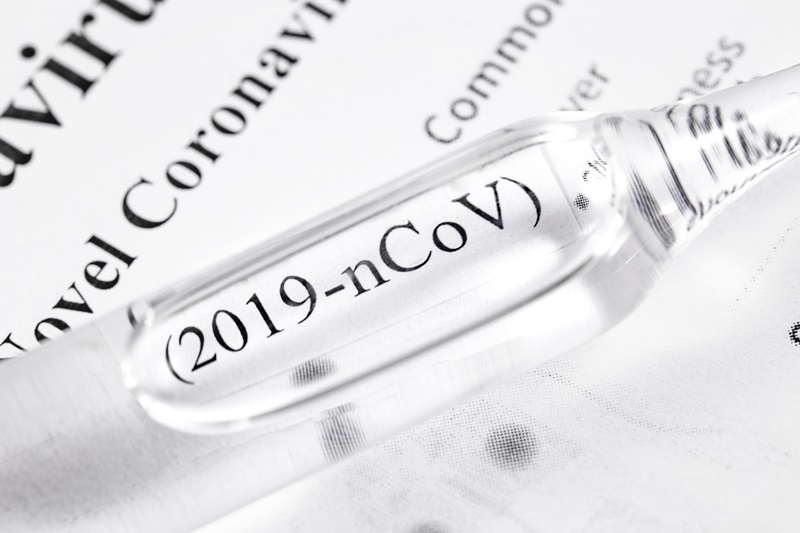
Riverside Health is closely monitoring the coronavirus and its potential presence in Virginia. This newly identified respiratory virus that can cause pneumonia was recently discovered in China. Cases of the virus have spread, prompting U.S. health officials to start screening passengers coming from Wuhan to several airports in the U.S.
The first case in the U.S. was announced on Jan. 21, 2020, according to the Centers for Disease Control and Prevention. There has been some potential presence of the virus in Virginia, but all cases investigated in the state as of Jan. 28, 2020 are negative for the coronavirus.
While the CDC considers this a serious public health concern, based on current information, the immediate health risk to the general American public is considered low at this time.
However, Riverside has activated its emergency management team, is following the virus news closely and remains prepared to enact protocols as required.
Riverside encourages community members who wish to gain a better understanding of the coronavirus and its signs and symptoms to read through the FAQs below, visit the CDC or Virginia Department of Health websites, or call the Riverside Nurse hotline at 757-595-6363 (toll-free 1-800-675-6368) with any questions.
What is a coronavirus?
Coronaviruses are a group of viruses that can cause a range of symptoms including a runny nose, cough, sore throat and fever. Some are mild, such as the common cold, while others are more likely to lead to pneumonia. They're usually spread through direct contact with an infected person. Other well-known coronaviruses include SARS and MERS. The new virus is called 2019-nCoV.
How does the coronavirus that’s in the news today spread from person to person?
It's unclear how easily it spreads from person to person, but the CDC recommends that anyone who may have been exposed to the illness monitor themselves for 14 days after close contact with an infected person.
What are the symptoms of the coronavirus?
Symptoms to watch for include fever, cough, shortness of breath, trouble breathing, body aches, sore throat or vomiting and diarrhea.
Who is at risk for the coronavirus?
People who are considered at epidemiological risk include those who have, in the last 14 days before symptom onset, have a history of travel from Wuhan City, China OR who have in the last 14 days before symptom onset had close contact with a person under investigation for the coronavirus. Anyone with symptoms who has had contact with an ill laboratory-confirmed coronavirus patient is also at risk.
Is there a coronavirus vaccine?
There is no specific treatment for the new virus, and no vaccine to prevent it at this time.
Does a face mask protect you from coronavirus?
The CDC recommends that patients with the coronavirus wear a face mask to protect others around them, or, if the patient cannot wear a face mask, others should if they are in the same room together.
If you are going to an Emergency Department, Urgent Care or your doctor’s office and have signs of respiratory illness, please put on a mask before entering the facility.
Do disinfectants kill the coronavirus?
The CDC suggests that anyone exposed to an infected patient clean all "high-touch" surfaces, such as counters, tabletops, doorknobs, bathroom fixtures, toilets, phones, keyboards, tablets and bedside tables. Cleaning agents can include a household disinfectant with a label that says "EPA-approved.” A homemade version can be made, using one tablespoon of bleach to one quart of water.
What's the risk this will spread in the U.S.?
CDC officials maintain that the likelihood this coronavirus will spread from person to person in the U.S. is low. However, isolated cases from travelers are likely.
What is Riverside Health doing to monitor or prepare?
Health care providers are obtaining a detailed travel history for patients being evaluated with fever and acute respiratory illness.
Health care providers are trained to immediately notify both infection prevention personnel at their health care facility and their local/state health department in the event of a patient under investigation for 2019-nCoV.
CDC’s Emergency Operations Center will assist local/state health departments to collect, store, and ship specimens appropriately to CDC, including during afterhours or on weekends/holidays. At this time, diagnostic testing for 2019-nCoV can be conducted only at CDC.
If a patient is under investigation for 2019-nCoV, standard precautions, contact precautions, airborne precautions, and eye protection will be implemented.
Where can I get more information?
For further information, visit the CDC website at www.cdc.gov/coronavirus/2019-ncov/index.html or the Virginia Department of Health website at www.vdh.virginia.gov/surveillance-and-investigation/novel-coronavirus/.
Published: January 28, 2020
